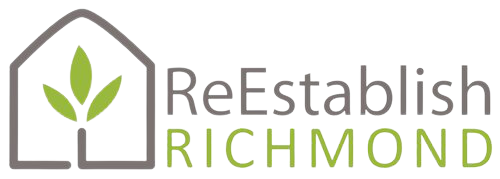Threads that bind us: Mariette Norbom
When ReEstablish Richmond volunteer Mariette Norbom was a small girl, growing up in the city of Vianden, Luxembourg, she spent many hours immersed in a brown, leather-bound book describing the lives of Catholic saints. Her favorite was Saint Elizabeth.
The book pictured Elizabeth carrying a basket filled with alms for the poor. For Mariette, the image helped form a lifetime direction. “I always wanted to give things to people,” she said. “I wanted to travel, to see the world, and to help people.”
In her 91 years, Mariette has fulfilled that dream many times over. A world map hung above the sewing table in her Henrico County apartment is dotted with dozens of pins marking places she has visited or lived. The list includes sites as far-flung as Bolivia, Senegal, Zambia, Turkey, Indonesia, and the Philippines, with many destinations in-between. Along the way, she has emulated Saint Elizabeth’s mission of helping others.
Most recently, that passion led Mariette to the Heela Sewing Course, an 18-week instructional program developed in partnership with ReEstablish Richmond. Since 2017, Mariette has been a mainstay of the project, putting her expert sewing ability to work helping refugee women discover the joy of creativity and the satisfaction of developing a practical skill.
“Regularly, Mariette would show up early to help set up the classroom space,” said Leah Westberry, ReEstablish Richmond’s Director of Economic Empowerment. “As a skilled and experienced dressmaker and seamstress, she was a wealth of knowledge inside and out of the classroom, often inviting students to her home to help them catch up on their projects or learn an extra skill they were interested in.”
The experience has allowed Mariette to draw on talents first honed at the knee of her grandmother, a widow who made and sold white shirts to customers in Luxembourg. With the Heela Sewing Course, Mariette instructed the refugee women in both simple projects, such as making pillows and handbags, and more advanced skills, such as designing a skirt or dress. She also suggested that instructors teach students a list of English words related to sewing—needle, thread, stitch, scissors, measuring tape, and the like.
The technique, something she had done as a Peace Corps volunteer in the Philippines from 1979 to 1981, allowed students to develop language skills while simultaneously learning to sew.
For Mariette, volunteering with the Heela Sewing Course has been as much about receiving as giving. Absorbing the stories of the newcomers has taught her much. “I admire that these people come from far away here and could learn by internet how to make a pillow or handbags,” she said, noting the need in the last year to teach by Zoom, due to COVID-19.
Inquisitiveness about people and cultures has propelled Mariette throughout a life that she describes as “long and complicated.” The chapters include a youth spent partially under Nazi occupation, a post-war year on the island of Guernsey in the British Channel, time as an au pair in Scotland and as an accountant in Vienden, marriage to a U.S. Air Force sergeant, the births of two sons, managing almost two-dozen moves in the United States before divorcing, overseeing a group home for troubled youth in Philadelphia, and spending two stretches with the Peace Corps in the 1980s, first in the Philippines and then in Mauritania in northwest Africa.
After moving to Richmond in 1999 to be near a son, Mariette continued her community service. She is stepping down from volunteering with ReEstablish Richmond due to health issues and the complexities of teaching during the pandemic. But if those situations correct themselves, she would love to pick up again with the organization.
“I do want to help people. It makes me feel so good,” she said. “When I’m teaching or sewing, I forget myself. And the people are so thankful and so nice.”
Mariette will be greatly missed, said Westberry. “She cares deeply about the things she spends her time doing and has made a lasting impact on the program and students' empowerment.”


